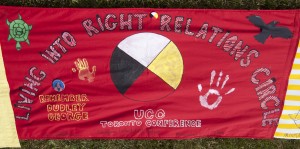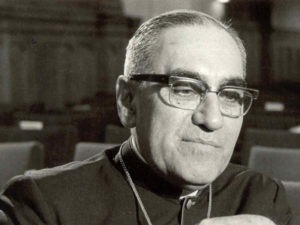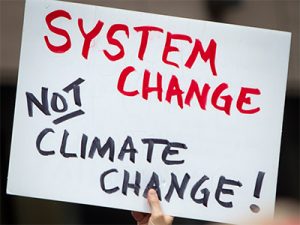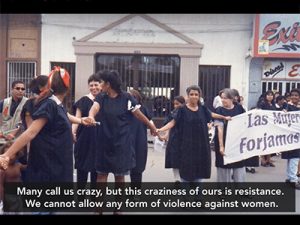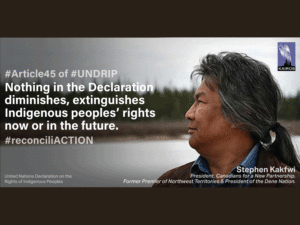The Nation to Nation Bike Tour: A Decolonization Journey
By Katy Quinn
Program Coordinator, Indigenous Rights
Now is the time for honest conversations between Indigenous and non-Indigenous people about our shared history and respectful and just ways forward. The Nation to Nation Bike Tour creates the space for these conversations. By the end of this week, the twelve Indigenous and non-Indigenous tour members, from a diversity of cultural backgrounds, will come together to launch the project. They arrive in Mohawk Territory from British Columbia, K.I., Toronto, Ottawa and some, including the tour’s Co-Facilitator, will be welcoming us to their territory in Akwesasne. I’m lucky enough to be part of this dynamic team, having worked as one of the organizers during the past months.
For two and a half weeks, from July 27 to August 14, the tour members will travel together, learning from each other and from their hosts. We will spend the first four and half days in Akwesasne for a rich introduction to the culture, history and contemporary issues of the territory. To name just a few of the experiences, we will be hearing the creation story, learning about the history of wampum belts and the Entewatatha:wi (“We Will Govern”) Program, and participating with the A’nowarakowa Arena hoop dancing and Kawehno:ke Rec youth groups in a workshop on traditional teachings, led by the Travelling College – Social/Women Singers..
The time in Akwesasne will end with a community event that acknowledges new friendships and sends us off on the road with ceremony. It will be a truly memorable few days that will set the tone and provide the framework for the rest of the tour.
Using theatre to facilitate conversations on decolonization, we’ll be offering an adapted version of the KAIROS Blanket Exercise in towns along the St. Lawrence. All members of the tour, and others along the way, will contribute to this workshop, core elements of which were developed based on the major themes and findings of the Royal Commission on Aboriginal Peoples Report. It’s built on the foundation that you can’t understand the current relationship between Native and non-Native people in Canada, unless you understand the history.
The tour will stop in Morrisburg, Prescott, Brockville, Gananoque and Kingston before ending at the Tyendinaga Pow Wow.
We are working on this project with The Otesha Project and Akwesasne. Otesha focuses on youth driven initiatives that inspire and empower young change-makers, particularly doing outreach through theatre and bike tours. I was drawn to Otesha’s work because of the energy you can generate by being mobile and also because when you are focusing on learning at the level of heart, mind and spirit, sometimes you forget about the body; after all, these four are interconnected and I hope this Nation to Nation Bike Tour is an experience that will touch on all four.
As I prepare for the launch, I’m thinking of how the Nation to Nation Bike Tour is one of many spaces where these decolonization conversations are taking place this summer. The time for these conversations is now because without them we all lose out in profound ways. Indigenous peoples lose out on equitable access to land, justice, services and resources. As non-Indigenous people we lose out on vast bodies of knowledge about how to live in a good way on this land and how to live together respectfully. The tradition of peace and friendship Treaties existed on Turtle Island long before the arrival of Europeans and we have a lot to learn from Indigenous peoples about how to peacefully coexist.
(This blog also appears on rabble.ca.)
